10 Best Herbal Creams For Dandruff
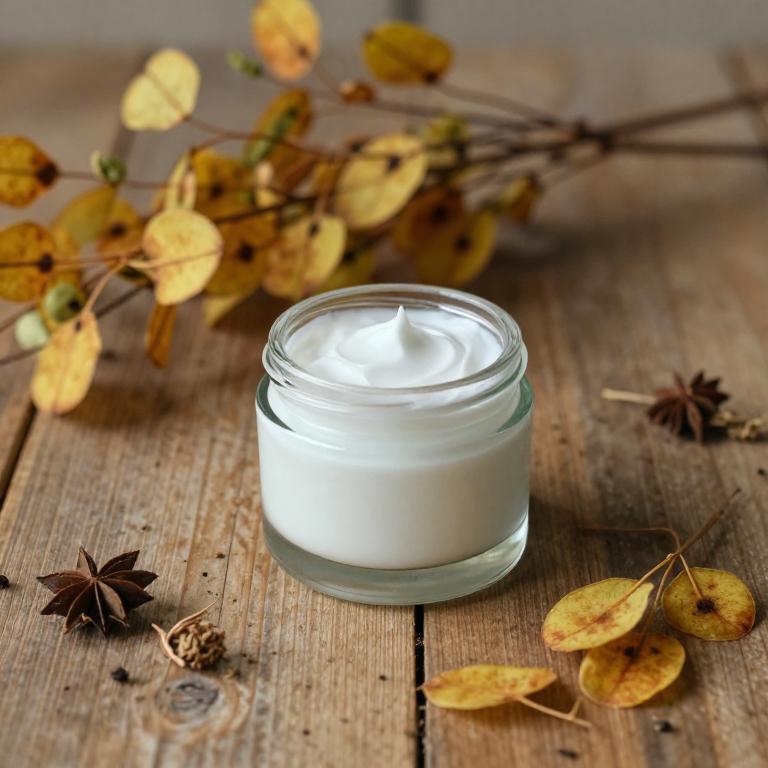
Herbal creams for dandruff are natural treatments that incorporate plant-based ingredients known for their soothing and antifungal properties.
These creams often contain ingredients like tea tree oil, neem, aloe vera, and chamomile, which help to reduce scalp irritation and combat fungal infections that contribute to dandruff. Unlike some chemical-based shampoos, herbal creams are generally gentler on the scalp and may be suitable for individuals with sensitive skin. They can be used as a complementary therapy alongside regular cleansing routines to maintain a healthy scalp environment.
However, it's important to consult a dermatologist to ensure the product is appropriate for one's specific scalp condition.
Table of Contents
- 1. Melaleuca (Melaleuca alternifolia)
- 2. Aloe vera (Aloe barbadensis)
- 3. Ginger (Zingiber officinale)
- 4. Salvia (Salvia officinalis)
- 5. Rosemary (Rosmarinus officinalis)
- 6. Camellia (Camellia sinensis)
- 7. Stinging nettle (Urtica dioica)
- 8. Field horsetail (Equisetum arvense)
- 9. Lemon grass (Cymbopogon citratus)
- 10. Eucalyptus (Eucalyptus globulus)
1. Melaleuca (Melaleuca alternifolia)

Melaleuca alternifolia, commonly known as tea tree oil, is a natural ingredient often used in herbal creams for dandruff due to its potent antifungal and antimicrobial properties.
These creams typically combine tea tree oil with other soothing ingredients like coconut oil, aloe vera, or chamomile to enhance their effectiveness and comfort. The antibacterial and antifungal action of tea tree oil helps reduce the buildup of Malassezia, a yeast-like fungus commonly associated with dandruff. Regular use of these herbal creams can help alleviate scalp irritation, itching, and flaking, promoting a healthier scalp environment.
While they are generally safe for most skin types, it's advisable to perform a patch test before full application to avoid any adverse reactions.
2. Aloe vera (Aloe barbadensis)

Aloe barbadensis, commonly known as aloe vera, is widely used in herbal creams for its soothing and healing properties.
These creams are particularly beneficial for individuals suffering from dandruff, as they help to reduce inflammation and soothe the scalp. The natural anti-fungal and antibacterial properties of aloe vera can combat the fungal infections that often contribute to dandruff. Regular application of aloe-based creams can improve scalp health and promote a reduction in flakiness and itchiness.
As a natural alternative to chemical-laden treatments, aloe barbadensis herbal creams offer a gentle and effective solution for managing dandruff.
3. Ginger (Zingiber officinale)

Zingiber officinale, commonly known as ginger, has been traditionally used for its anti-inflammatory and antifungal properties, making it a valuable ingredient in herbal creams for dandruff.
These creams often combine ginger extract with other natural components like coconut oil, neem, or tea tree oil to enhance their effectiveness against dandruff-causing fungi. The active compounds in ginger, such as gingerol and shogaol, help reduce scalp irritation and promote a healthy scalp environment. Regular use of zingiber officinale-based creams may help alleviate flakiness, itching, and redness associated with dandruff.
However, it is advisable to perform a patch test before using these creams to avoid any potential allergic reactions.
4. Salvia (Salvia officinalis)

Salvia officinalis, commonly known as sage, is often incorporated into herbal creams designed to address dandruff due to its antimicrobial and anti-inflammatory properties.
These creams typically combine sage extract with other natural ingredients like tea tree oil or peppermint to enhance their effectiveness against fungal and bacterial growth on the scalp. The essential oils in sage help to soothe irritation and reduce flakiness, making them a popular choice for those seeking natural alternatives to conventional dandruff treatments. Regular use of salvia officinalis-based creams can help maintain a healthy scalp environment and minimize the recurrence of dandruff.
However, it is advisable to perform a patch test before applying these creams to ensure no allergic reaction occurs.
5. Rosemary (Rosmarinus officinalis)

Rosmarinus officinalis, commonly known as rosemary, is a popular herb used in natural remedies for various skin and scalp conditions, including dandruff.
Rosemary essential oil, derived from the leaves of this plant, is known for its antimicrobial and anti-inflammatory properties, which can help reduce the buildup of dead skin cells and fungal growth on the scalp. Herbal creams containing rosemary are often formulated with other soothing ingredients like lavender or tea tree oil to enhance their effectiveness against dandruff. These creams can help soothe itchiness and promote a healthier scalp environment.
Regular use of rosemary-based herbal creams may lead to a reduction in dandruff and improved overall scalp health.
6. Camellia (Camellia sinensis)
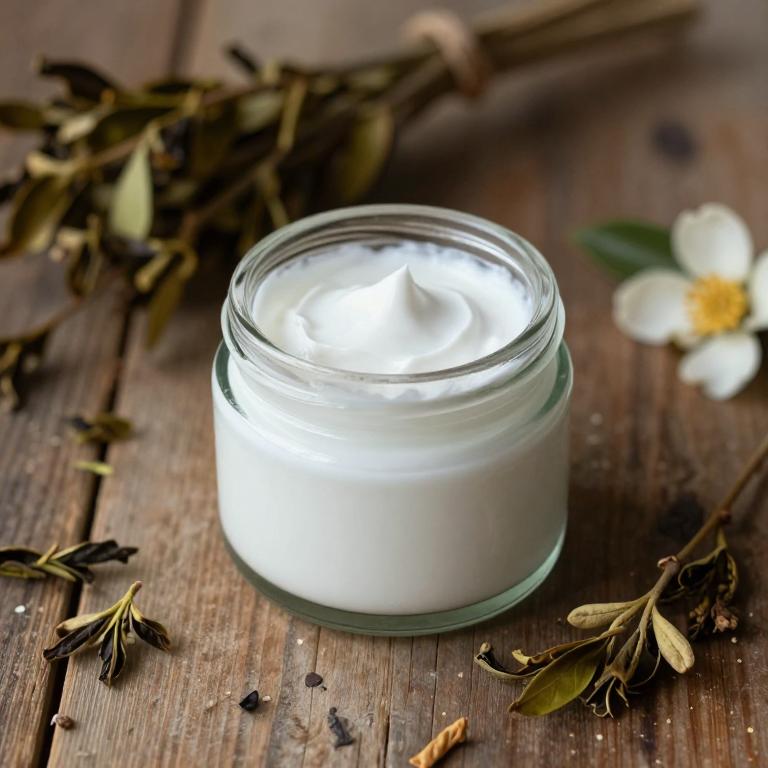
Camellia sinensis, the plant from which green and black teas are derived, is known for its potential benefits in skincare and hair care.
Herbal creams containing Camellia sinensis extracts are increasingly being used to address dandruff due to their anti-inflammatory and antifungal properties. These creams may help soothe an irritated scalp and reduce the buildup of dead skin cells that contribute to dandruff. The antioxidants in Camellia sinensis can also promote a healthier scalp environment, supporting overall hair health.
However, it is important to consult with a dermatologist to determine if these creams are suitable for individual scalp conditions.
7. Stinging nettle (Urtica dioica)

Urtica dioica, commonly known as stinging nettle, is a plant that has been traditionally used for its potential health benefits, including treating dandruff.
Herbal creams containing Urtica dioica are formulated to soothe the scalp and reduce flakiness by leveraging the plant's anti-inflammatory and antifungal properties. These creams are often rich in nutrients like vitamins A, C, and E, which can help nourish the scalp and promote healthy hair growth. The natural compounds in Urtica dioica may also help regulate sebum production, reducing excessive oiliness that can contribute to dandruff.
As a natural alternative to conventional treatments, Urtica dioica herbal creams offer a gentle and effective option for those seeking relief from persistent dandruff.
8. Field horsetail (Equisetum arvense)
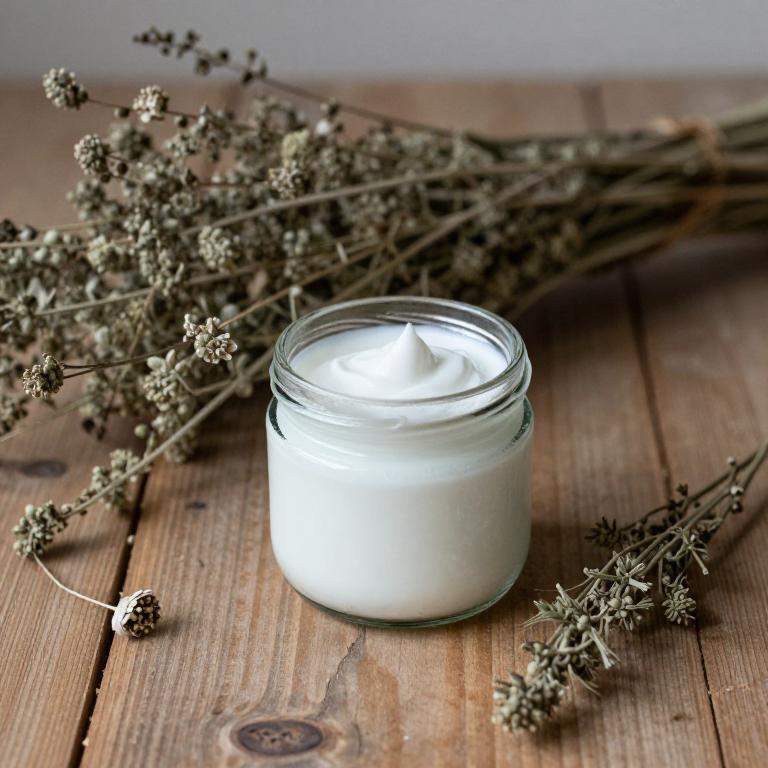
Equisetum arvense, commonly known as horsetail, is a plant rich in silica and other minerals, making it a popular ingredient in herbal creams for dandruff.
These creams are formulated to nourish the scalp and promote healthy hair growth by strengthening the hair shaft and reducing breakage. The anti-inflammatory and antifungal properties of horsetail help to soothe irritated skin and combat the fungal causes of dandruff. Regular use of equisetum arvense herbal creams can lead to a noticeable reduction in flaking and itching, offering a natural alternative to conventional treatments.
However, it is advisable to consult a healthcare professional before using these products, especially if you have sensitive skin or existing scalp conditions.
9. Lemon grass (Cymbopogon citratus)
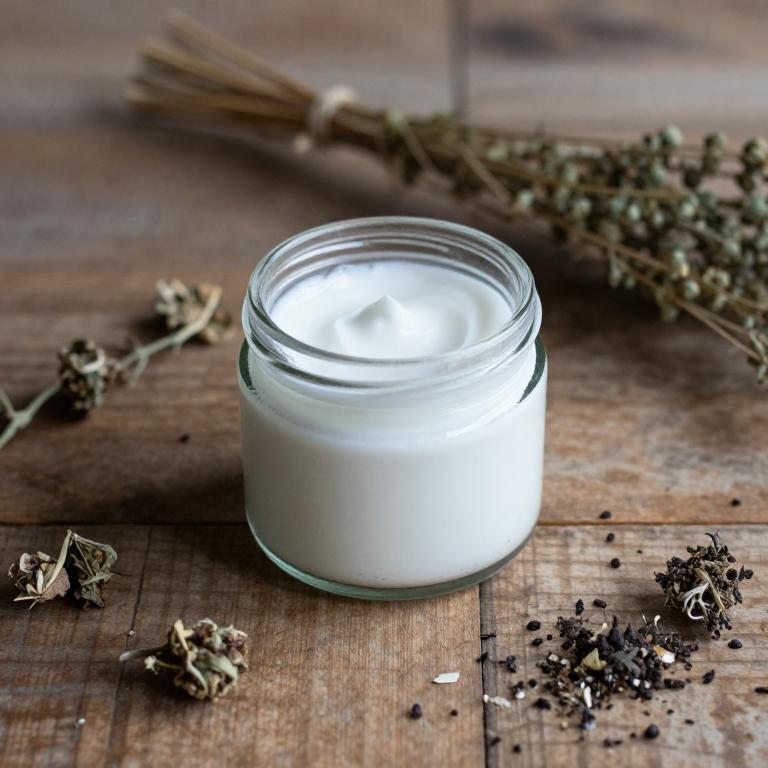
Cymbopogon citratus, commonly known as lemon grass, is a natural herb that has been traditionally used for its soothing and antifungal properties.
Lemon grass herbal creams are formulated with extracts of this plant, which can help alleviate symptoms of dandruff by reducing scalp irritation and inflammation. These creams are often enriched with other beneficial ingredients like tea tree oil, aloe vera, and vitamin E to enhance their effectiveness. Regular application of cymbopogon citratus herbal creams can promote a healthier scalp environment and reduce the buildup of dead skin cells.
As a natural alternative to conventional dandruff treatments, these creams offer a gentle and effective solution for those seeking holistic care for their scalp health.
10. Eucalyptus (Eucalyptus globulus)
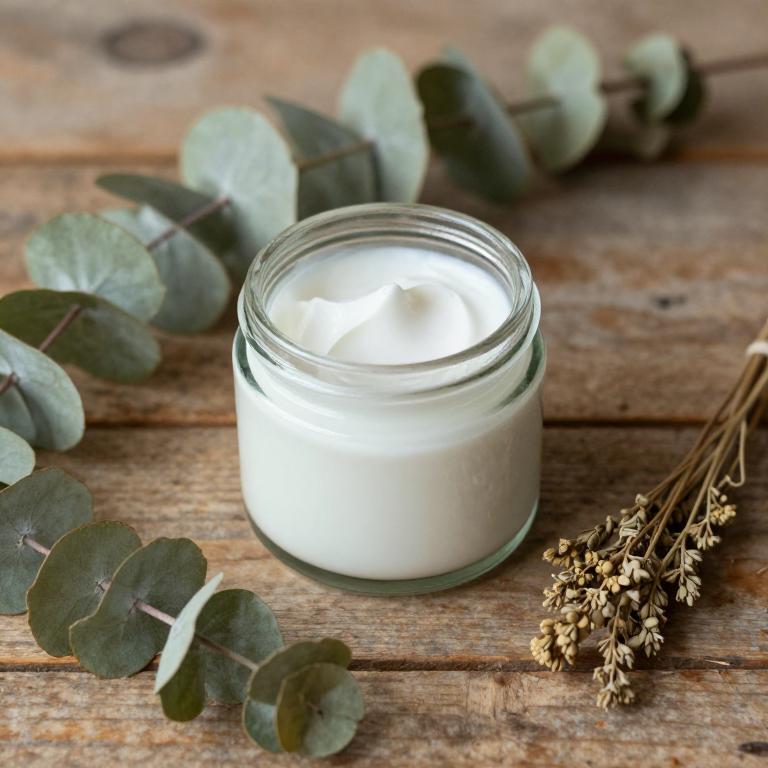
Eucalyptus globulus, commonly known as eucalyptus oil, is often used in herbal creams for dandruff due to its antifungal and anti-inflammatory properties.
These creams typically combine eucalyptus oil with other natural ingredients like tea tree oil, coconut oil, and lavender to enhance their effectiveness. The essential oils in these formulations help to reduce scalp irritation, inhibit the growth of Malassezia fungi, which are a common cause of dandruff. Regular application of eucalyptus globulus herbal creams can lead to a noticeable reduction in flaking and itching, promoting a healthier scalp environment.
However, it is advisable to perform a patch test before use to avoid any allergic reactions.